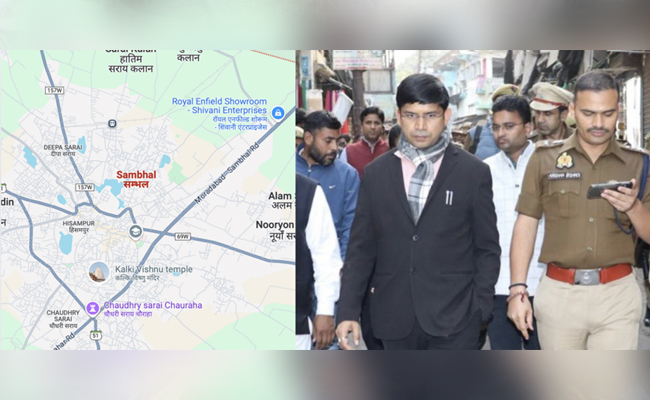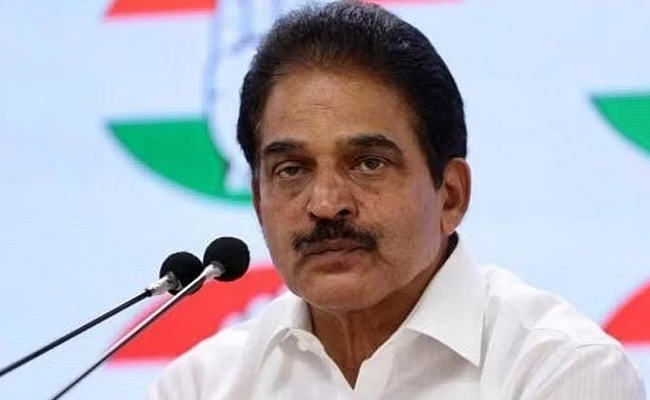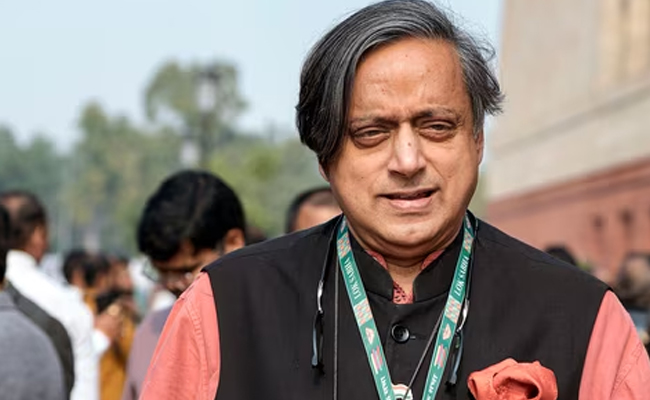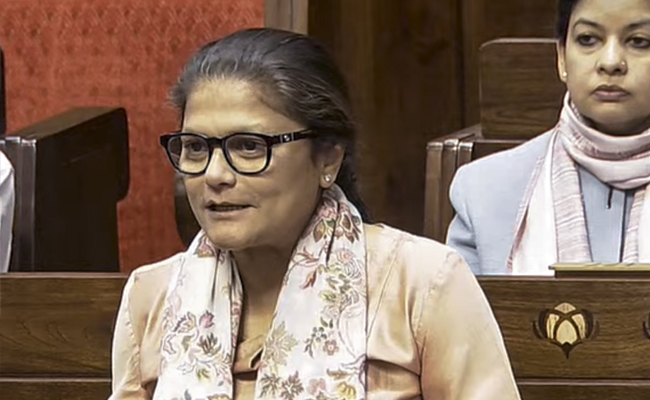New Delhi: Officials in Sambhal, Uttar Pradesh, have revived an old temple in a predominantly Muslim locality, sparking discussions on its history and the claims surrounding its closure. The district administration and police restored the structure, which had reportedly remained dormant for years, and reopened it for Hindu worship after clearing the site.
The temple, found in the Khaggu Sarai area, was reportedly discovered during an anti-encroachment drive. The administration claims the temple had been neglected since 1978, following communal riots that led Hindus in the area to relocate. However, Hindu residents have rejected the theory of encroachment, stating that the structure was always under their care and control.
The Sambhal administration, led by District Magistrate (DM) Rajender Pensiya and Superintendent of Police (SP) Krishan Kumar Bishnoi, undertook cleaning and restoration efforts at the temple and a nearby well. Officials also installed CCTV cameras for security and stationed police personnel to monitor the site.
DM Pensiya revealed that the temple and its surroundings were found during the demolition of encroachments on roads and drains. Speaking about the discovery, Pensiya said, “We have written a letter to the Archaeological Survey of India (ASI) regarding the temple and the koop (well). Once they come and carry out carbon dating, we will actually find out how old the temple is.”
During the cleaning of the well, officials uncovered three idols, identified as Ganesha, Parvati (broken), and Lakshmi. DM Pensiya stated that the administration is investigating how the idols ended up in the well and that beautification plans will follow once the temple's antiquity is established.
The temple, now being referred to as the Pracheen Sambhaleshwar Mandir (Ancient Sambhaleshwar Temple), has also been painted saffron. Initially, DM Pensiya called it the Kartik Mahadev Mandir.
Hindu locals have contradicted the administration’s narrative of abandonment and encroachment. Dharmendra Rastogi, whose family owned property in the area, said the temple was functional until 2006. He claimed that his family had locked the structure and built a protective wall around it for preservation before relocating.
“The last puja was conducted in 2006. There was no prohibition on darshan of the temple or taking its keys,” Dharmendra told ABP News. He further clarified, “The temple is as it was. There is no encroachment. We had raised the wall. It was a part of the temple.”
Another resident, Vishnu Sharan Rastogi, a patron of the city’s Hindu Sabha, stated that while Hindus gradually moved out of Khaggu Sarai after the 1978 riots, they were never prevented by Muslims from visiting the temple. “We had to close the temple as the priests could not live here,” he explained, adding that managing the temple had become increasingly difficult.
“There was no fear. Whoever could get a place somewhere else, moved out,” Dharmendra reiterated.
P. Verma, another former resident, said his family left the locality in 1993 but recalled that the temple was operational at least until then. “The cleaning took place, so did the puja archana,” he said, adding that the well and a nearby Peepal tree were significant to the area. “I used to drink water from this well. Women from the locality would come and wash clothes there,” Verma shared.
The temple’s revival has led to sharp political reactions. Uttar Pradesh Chief Minister Adityanath used the event to criticise the Opposition, saying, “Did the administration build such an ancient temple in Sambhal overnight? Did such an ancient idol of Bajrangbali come there overnight? Why have those savages who committed the massacre in Sambhal 46 years ago not been punished till date? Why is this not discussed?” Adityanath claimed that the temple had been shut since 1978.
Sambhal MP Zia-ur-Rehman Barq of the Samajwadi Party countered these claims, accusing the administration and government of spreading “false rumours” about the temple. Taking to X (formerly Twitter), Barq stated, “The truth is that puja was performed in this temple till 16 years ago, and the lock of this temple was put by the Rastogi family itself. The keys were still with the Rastogi family. The maintenance of the temple was done by the Muslims of the neighbourhood.”
Barq criticised those propagating communal narratives and remarked, “Those looking for temples under mosques across the country should learn a lesson from the Muslims of Sambhal.” He asserted that the temple has remained unchanged since 46 years ago. “This is truly a slap on the face of those communal people,” he said.
Officials, meanwhile, are awaiting the ASI's assessment to determine the temple's age. The administration has committed to restoring the structure to its original form, with Sub-Divisional Magistrate Vandana Mishra stating that efforts are being made to preserve its antiquity.
Let the Truth be known. If you read VB and like VB, please be a VB Supporter and Help us deliver the Truth to one and all.
Belagavi (PTI): Targeting the BJP-led government at the Centre over the introduction of two bills in Lok Sabha that lay down the mechanism to hold simultaneous elections, AICC general secretary K C Venugopal on Tuesday said the clear intention behind 'one nation, one election' is "one nation, no election".
Terming 'one nation, one election' as "not practical", he expressed doubts about the bills getting passed in Parliament.
"One nation, one election means, it is a clear intention -- one nation, no election. BJP's main agenda is one nation, no election. They don't want to have a democratic process at all. To sabotage the entire democratic process gradually, they are bringing this new idea of one nation, one election," Venugopal said in response to a question.
Speaking to reporters here, he said, "Karnataka has its own speciality. Kerala has its speciality, similarly Manipur and Jammu Kashmir too have their own speciality. Unity in diversity is the beauty of this country. These people (BJP) don't believe in democracy, diversity."
"This (one nation, one election) is not at all practical. I don't think it will get passed in Parliament. Let's see," he added.
The bills that lay down the mechanism to hold simultaneous elections were introduced in the Lok Sabha after a fiery debate on Tuesday.
Opposition parties dubbed the draft laws -- a Constitution amendment bill and an ordinary bill -- as an attack on the federal structure, a charge rejected by the government.
The bills were introduced after the opposition sought a division of votes.





